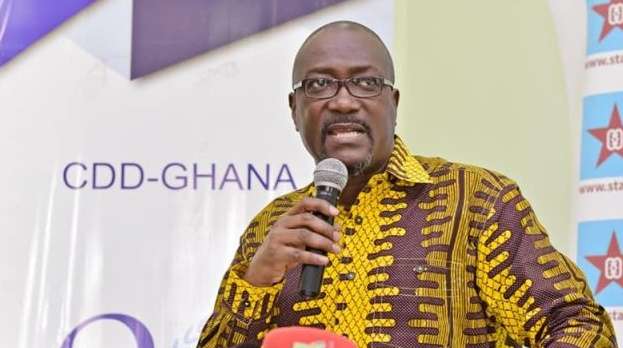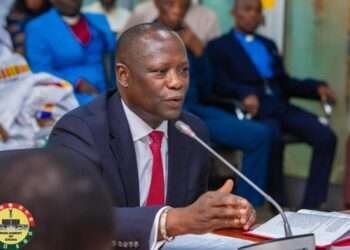Despite its inherent flaws, democracy is the best system of government ever. It guarantees the protection of rights and freedom and further ensures a peaceful change of government.
Democracy is built with inherent “conflicts and contradictions” as shown by the ongoing spat between the Executive and the legislative arms of government in Ghana. Although it has stirred fears in some quarters of society, it must be seen as a litmus test for the country’s democracy.
Another laudable democracy in the subregion apart from Ghana, Senegal, has just passed its test and successfully elected its youngest leader ever. Bassirou Diomaye Faye’s election marks a break from the past despite an attempt by the elite class to cling to the privileges they lost.
However, the strength of any democracy depends on the vibrancy of its institutions and the effectiveness of its political parties since they constitute the government.
In other places, and many advanced Western societies, political parties serve as a vehicle to poach talents and utilize them for the benefit of society. Not so much can be said of Ghana.
Difficulties of Ghana’s Democracy
In this regard, Professor H. Kwesi Prempeh of the Center for Democratic Development (CDD) holds the view that political parties should display a certain level of strategic thinking to the benefit of the nation.
“Strategic thinking is a process that defines the manner in which people think about, assess, view, create the future for themselves and others an extremely effective, efficient, and valuable tool… political parties are regarded as an organizational set-up for hard thinking that drives growth and development if their manifestos are gradually becoming important, there was the need to use it as a vehicle for getting citizens”
Prof H. Kwesi Prempeh

Meanwhile, in sounding a more cautious note, prof. Gyampo’s concerns centered on why political parties put their interest above national interest. He advised a rethink that will ensure the benefit of the country.
“It appears the political parties outside Parliament or the parties to which they belong wield a lot of influence and want to control these individual parliamentarians more than the constituents should do, and that’s how come oftentimes, when there’s going to be parliamentary elections, MPs who have not done so well in protecting the interest of their constituents will go there begging”
Prof Ransford Gyampo
From the above, it is evident that political parties are indispensable components of a healthy democracy. More so, to ensure stable and efficient administration, the experience, coherence, commitment, and patriotism of political parties are very crucial.
Furthermore, in Ghana, political parties play “oversized” roles, and this has not benefited the country much. The prioritization of a party’s interest over state and national interest has become the norm, thus making politics murkier as well as a winner-takes-all affair.
In a recent speech, the Member of Parliament for Dome-Kwabenya Constituency bemoans the situation highlighting how it negatively impacts the state.
“We have to make sure that as the youth are coming out, they see politics not as a tool for ethnic violence; they shouldn’t see politics as a tool of enriching themselves; they don’t see politics as a tool for polarization and sometimes as a tool leading to civil war. They need to see politics in a different dimension, which is that of serving humanity, serving my nation, serving my people, and providing the basic social amenities for my people,”
Sarah Adwoa Safo
The question of Popular
The democratic system of government is centered on mandate and consent and as such a matter of popular participation.
In Ghana, despite popular participation in elections, citizens are hardly involved in policy formulation. The result is usually apathy and disillusionment with some policies.
In other instances, this lack of ownership creates a situation where policies don’t fit into the context they intended for and as a result leads to inefficiency and poor service delivery. To avoid most of the aforementioned mistakes and challenges, Ghanaians can learn from their Senegalese neighbours to organize and compel the political parties to change course and start putting national interests over partisan interests.
READ ALSO: Confronting the Abuse of Women in Political Leadership




















